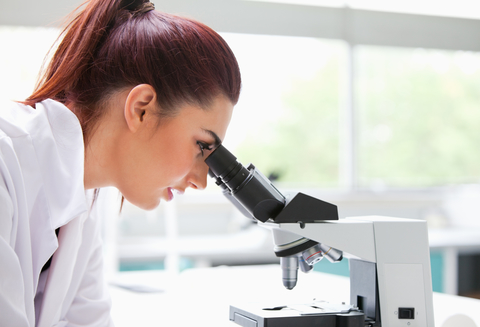Even the simplest microbe can act like a savvy investor

Scientists investigating the fundamental question in biology as to why individuals have evolved to cooperate rather than simply exploiting the contributions of their rivals, have found that microbes vary their contribution to maximise the return of investment.
The University of Bath reports a collaboration between its Milner Centre for Evolution and University College London has revealed that microbes act like shrewd economists when cooperating. When they find themselves in groups with mostly relatives they contribute heavily to cooperation, which benefits the group. In contrast, when they are in a group outnumbered by unrelated individuals, they exploit the contributions of the others.
The team studied the social amoeba dictyostelium discoideum, or slime mould. Slime moulds live in the soil as single celled organisms, but come together to form a slug-like creature when they run out of food. The newly formed slug will eventually form a fruiting body composed of a stem and spores. This process requires cooperation between the individual amoebae to form a successful fruiting body.
The scientists investigated what factors caused the individual amoebae to “choose” whether to sacrifice themselves to form the stem of the fruiting body for the collective good, or to exploit the contribution of others and form spores that would go on to reproduce.
Traditionally biologists trying to solve this puzzle labelled individuals as either cooperators or cheaters. However, this study shows that even simple microbes follow the economic principles of collective investment, varying their contribution depending on how much stake they have in the success of the fruiting body.
Jason Wolf, Professor of Evolutionary Genetics at the Milner Centre for Evolution, said “Our research shows that even the simplest microbe can act like a savvy investor. Rather than being labelled as either cheaters or co-operators, each individual can potentially benefit from varying their level of investment into cooperation depending on the investments of others. If one person has an 80 per cent share of a company and another has a 20 per cent share, it makes economic sense for the person with 80 per cent to invest more than the other person because they have more at stake if the project fails. In a similar way, microbes with one genotype invest more resources in making the stalk if most of the others in the group share the same genes. If they don’t invest, they have more to lose because their stake is larger. Microbes of a minority genotype have less to lose if the fruiting body fails so go for maximum return by forming spores.”
The researchers found that an equal mixture of two phenotypes led to neither group investing sufficiently, creating a fruiting body that collapsed under its own weight.
Chris Thompson, Professor of Developmental and Evolutionary Genetics in the Centre for Life’s Origin and Evolution and UCL Division of Biosciences, said “This research throws new light on the evolution and maintenance of cooperation. Cooperation is fundamental to the success of most organisms on the planet, from microbes to humans. However, understanding why cheaters do not invade and collapse cooperative systems still remains a puzzle. Many attempts to solve this problem rely on the assumption that individuals can either ‘cheat’ or ‘cooperate’. In these cases, cheating would usually the best strategy and thus cooperation collapses, an idea demonstrated by games such as the Prisoner’s Dilemma. Our studies demonstrate a solution to the problem, because an even better strategy is to cheat if you can get away with it and cause little damage to group success. However, if group success would be compromised, individuals should change their strategy and cooperate, which helps stabilise cooperation. The fact that we observe this behaviour in a simple microbe is truly remarkable.”
The study is published in Proceedings of the National Academy of Sciences. It was funded by the Biotechnology and Biological Sciences Research Council, the Wellcome Trust, the Natural Environment Research Council, and the University of Bath Alumni Fund.








